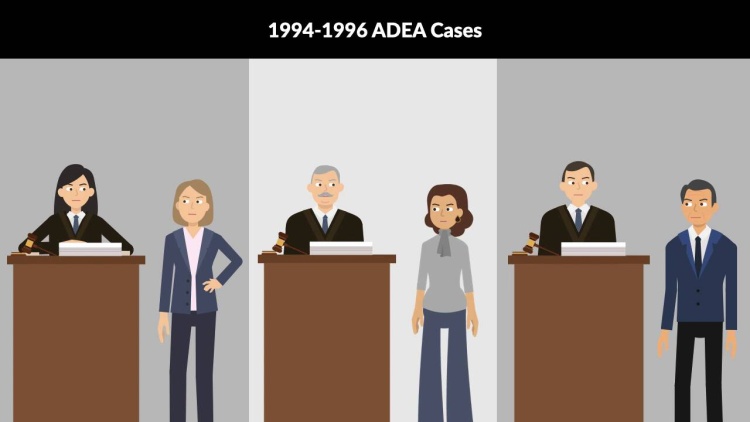Kimel v. Florida Board of Regents
United States Supreme Court
528 U.S. 62 (2000)

- Written by Rich Walter, JD
Facts
Separate groups of individuals (plaintiffs) employed by Alabama or Florida state government agencies (defendants) filed lawsuits in three federal district courts. One such individual was J. Daniel Kimel, Jr. (co-plaintiff), an employee of the Florida Board of Regents (co-defendant). The employees alleged violations of the federal Age Discrimination in Employment Act (ADEA), which broadly prohibited employers from discriminating against employees solely on the basis of age. The agencies argued that they were immune to the lawsuits because the Eleventh Amendment to the United States Constitution protects a state's sovereign immunity against lawsuits filed by individual citizens in federal courts. One court agreed with the agencies and dismissed the lawsuit. Two courts disagreed with the agencies and denied the agencies’ motions to dismiss. The losing parties in each case appealed to the United States Court of Appeals for the Eleventh Circuit, which consolidated the appeals and ruled that the ADEA did not abrogate (override) the agencies' Eleventh Amendment immunity. Because this decision conflicted with the decisions reached by other circuit courts of appeal, the United States Supreme Court granted the employees' petition for certiorari.
Rule of Law
Issue
Holding and Reasoning (O'Connor, J.)
Dissent (Stevens, J.)
Dissent (Thomas, J.)
What to do next…
Here's why 899,000 law students have relied on our case briefs:
- Written by law professors and practitioners, not other law students. 47,000 briefs, keyed to 994 casebooks. Top-notch customer support.
- The right amount of information, includes the facts, issues, rule of law, holding and reasoning, and any concurrences and dissents.
- Access in your classes, works on your mobile and tablet. Massive library of related video lessons and high quality multiple-choice questions.
- Easy to use, uniform format for every case brief. Written in plain English, not in legalese. Our briefs summarize and simplify; they don’t just repeat the court’s language.





